New typology and a SONNET webinar series now launched!
SONNET looks into how social innovation can contribute to the transformation of the energy sector. But, what innovations exist in Europe today, who creates them, and how do they work? SONNET’s newly launched typology and our recent kick-off webinar dig into those very questions to find out what social innovation in energy (SIE) is all about.
To fully understand how diverse types of SIEs can support the energy transition, we invited panellists from different fields of expertise to our webinar to share their practical experiences from both research and local government perspectives. They also shed light on the process of developing SONNET’s SIE typology, and pointed to examples of what the typology brings to light.
Dr. Julia Wittmayer, a researcher at the Dutch Research Institute for Transitions (DRIFT), worked as part of the SONNET team on developing our SIE typology. During the webinar, she showcased the results of this process along with some examples of SIEs.
Dr. Jana Deforche from the City of Antwerp presented Stadslab2050 – an ‘experimentation space’ for innovative and sustainable solutions in the city – as a concrete example of social innovation. She went on to share how, based on her experience, cities can benefit from using City Labs or Living Labs.
Dr. Donal Brown from the University of Leeds is involved in the SONNET sister project PROSEU, where he contributed to the development of typology of ‘prosumer’ business models in Europe. In his presentation, he dove deeper into ‘prosumerism’ as one SIE example.
Social innovation in energy transitions: what, who and how?
Compiling the SONNET typology was a first step towards answering these questions. This began with SONNET researchers analysing 500 examples of SIEs from across eight European countries: Belgium, France, Germany, Luxembourg, the Netherlands, Poland, Switzerland and the United Kingdom. These were then grouped into 18 types, such as local energy production and consumption, local peer-to-peer electricity exchange, and energy gamification and nudges.
The publicly available SIE typology helps us understand what energy initiatives have already been deployed in Europe, what actors are involved in these projects and how they work. It sheds light on various aspects of SIEs, highlighting, for example, that SIEs do not only originate from bottom-up initiatives or civic engagement but also emerge from public and private entities.
“(…) social innovations don’t necessarily need to originate in a grassroots context or in a civic community context. They can also originate within a public sphere – in municipalities, for example, but also within a private sphere.” – Julia Wittmayer
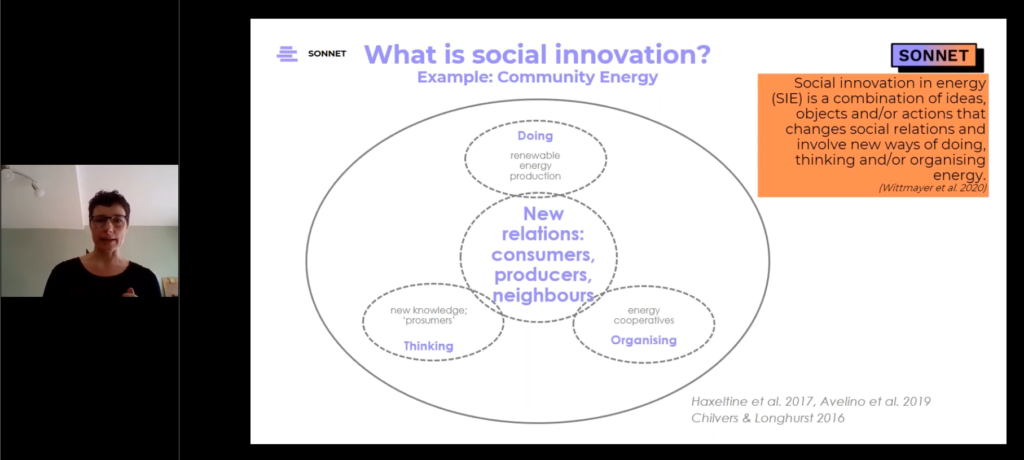
A local government perspective
SONNET works closely with six cities through City Labs to test how they can support SIEs that contribute to the energy transition locally. The role of these facilitated labs is to experiment with innovative ideas, projects, solutions, technologies or services for sustainable energy and test what is most effective at the city level.
“(…) Many experiments in Stadslab2050 share three characteristics: there has to be innovative power in the experiment, there is multi-actor involvement – the city does not do it alone, we do it in partnership – and three, there is future potential learning.” – Jana Deforche
Can cities actually benefit from having these kinds of ‘testing spaces’? The example of Stadslab2050 in Antwerp, presented by Dr. Jana Deforche, shows that living labs can effectively address diverse urban challenges, such as climate change, nature-based solutions in cities, circular economy, sustainable goods chains and much more. They help cities to cooperate with specialised institutions and together invent new urban solutions. Stadslab2050 will also play a role in the SONNET project; through SONNET, Antwerp will examine how it contributes to a transition to more sustainable and affordable energy in the city.
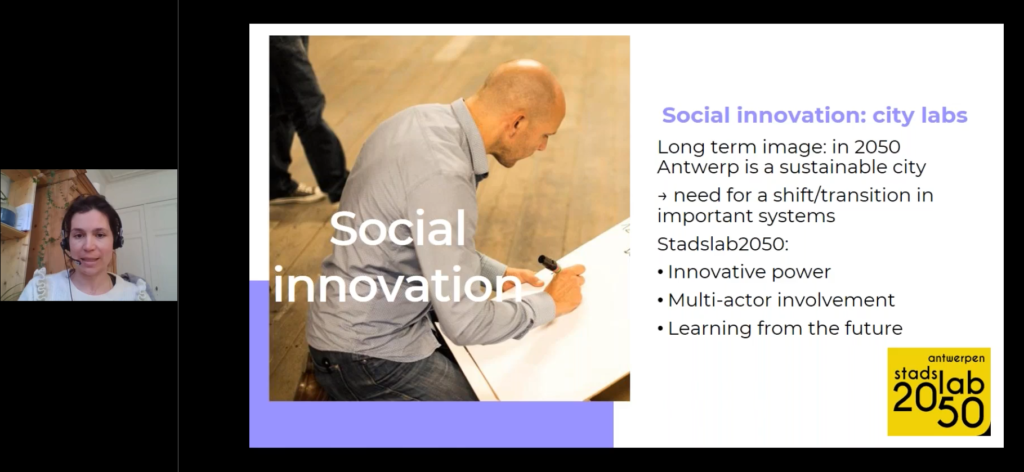
Prosumer Business Models
“We identified around 15 different business model archetypes, that are being trialled across different prosumer situations and contexts across Europe.” – Donal Brown
‘Prosumerism’ – where an individual both produces and consumes energy – is another common example of SIE in Europe. It is expected to play an increasingly important role in the transition of energy systems. Dr. Donal Brown presented the prosumer business models analysed within the PROSEU project, focusing on three different modes of governance: community, municipal and market governance.
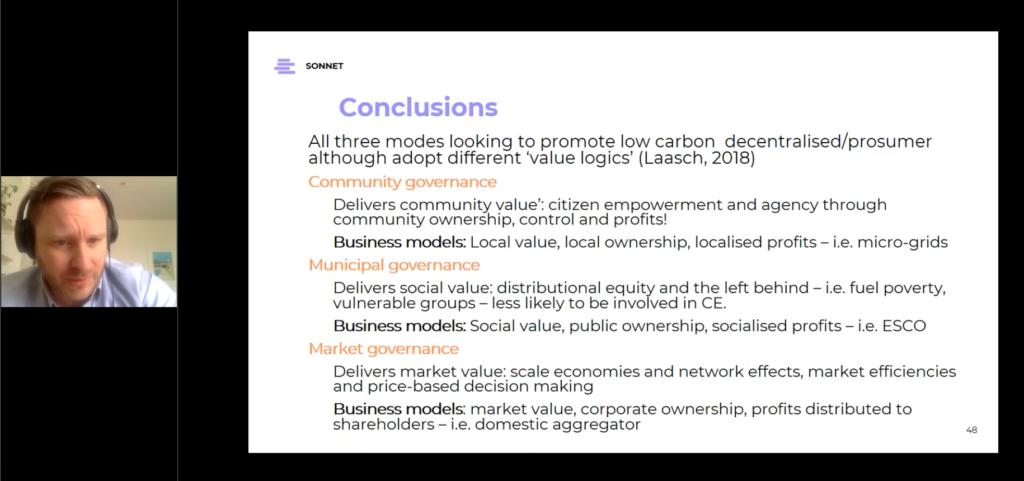
We were thrilled to receive many questions from participants who wanted to explore the details of how City Labs contribute to local policies, and how the different governance structures influence prosumer business models.
The webinar series “Explored: Social Innovation in Energy Transitions” will continue to bring diverse groups together to discuss how SIEs can contribute to more sustainable energy systems in Europe. Soon, the new content will be available – SONNET in-depth case studies further exploring SIE initiatives. Stay tuned for updates and join us in May for the next edition to take the conversation forward!
And in the meantime, get involved and stay in touch:
- Check out the online typology here.
- Click here to watch the recording of our kick-off webinar, and to read on about the overarching webinar series.
- Subscribe to our mailing list and follow us on twitter to stay up-to-date.
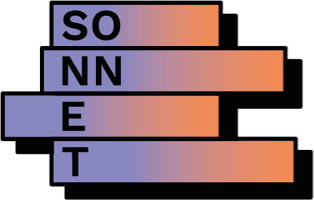
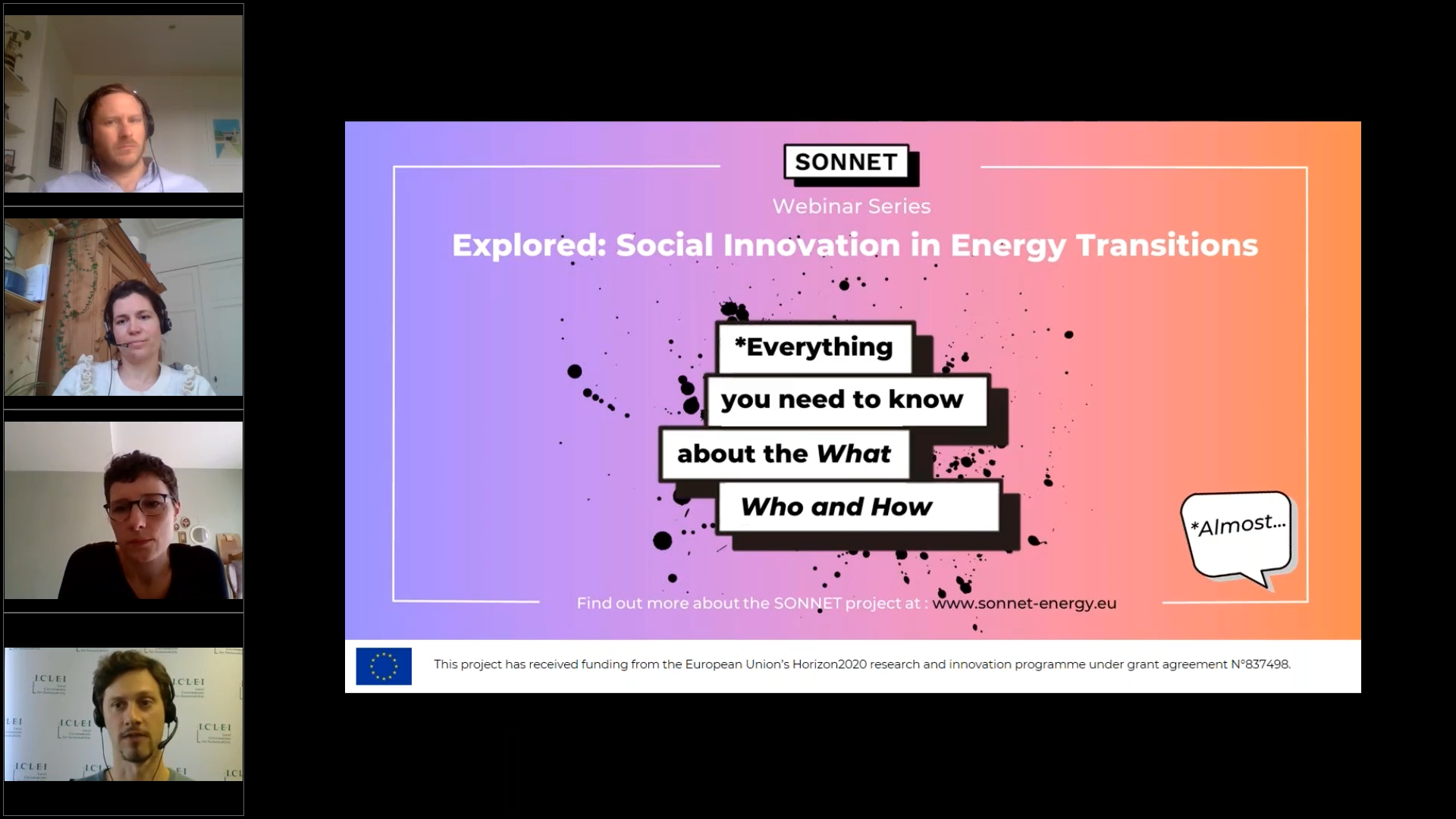
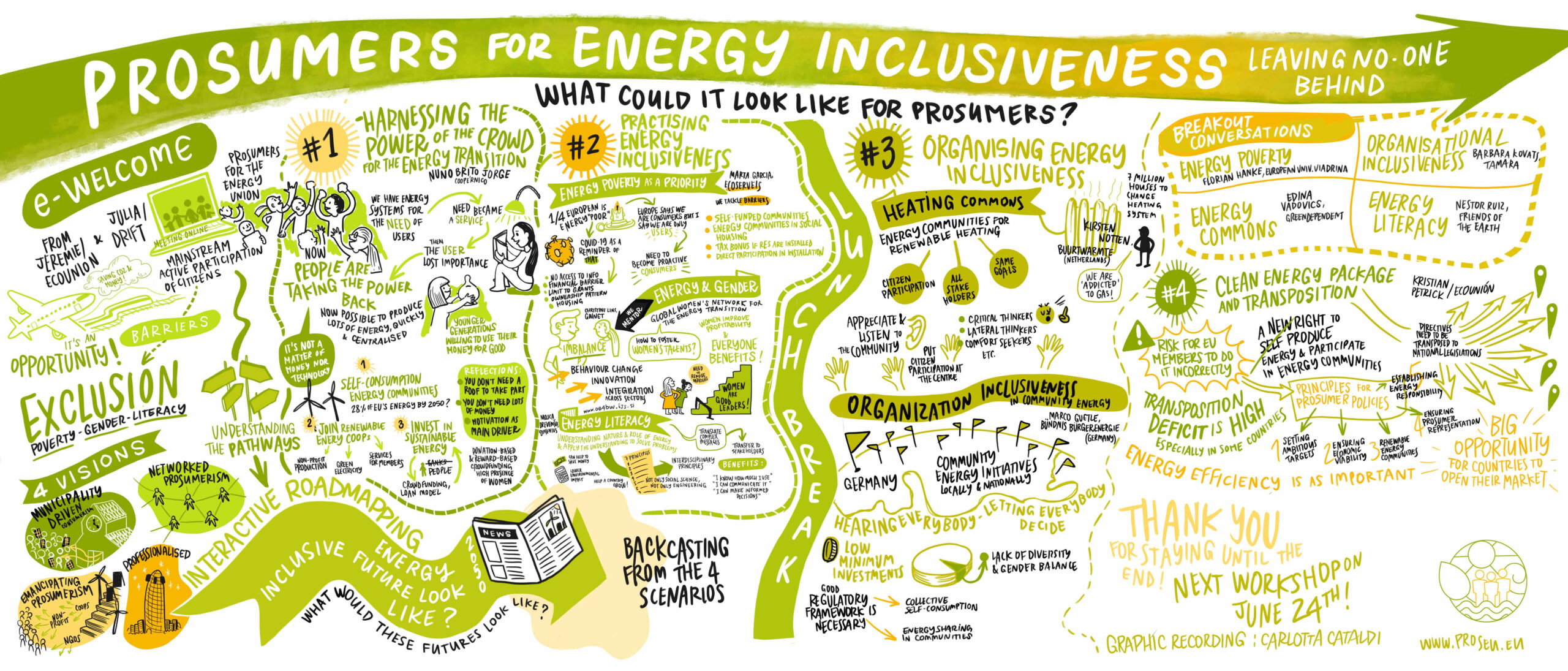
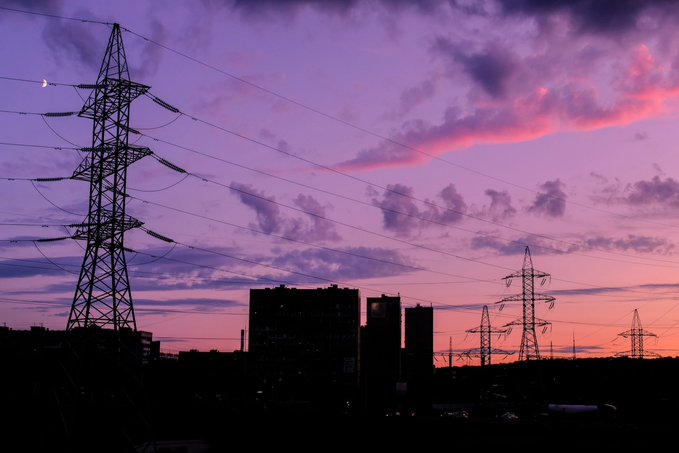

 The project has received funding from the European Union’s Horizon 2020 research and innovation programme under grant agreement No 837498.
The project has received funding from the European Union’s Horizon 2020 research and innovation programme under grant agreement No 837498.